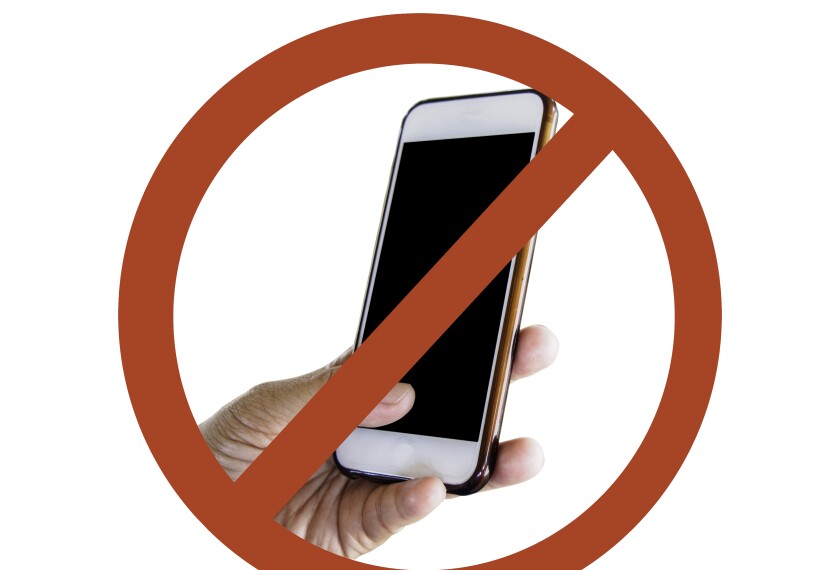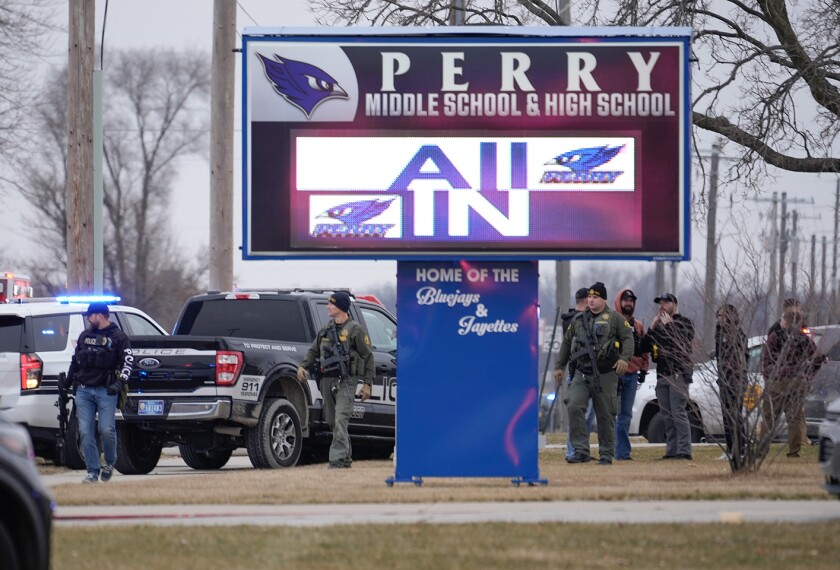Students’ cellphone use in class can be a huge headache for teachers—negatively affecting students’ focus, behavior, and learning. While there is a growing movement to ban the devices in schools, many teachers are still left to manage the problem on their own.
With around nine out of every 10 teens owning a smartphone, according to Common Sense Media, you’d be hard-pressed to find a high school teacher who has not had to deal with this challenge. And middle and elementary school teachers are not immune either, as 43 percent of 8- to 12-year-olds now have their own phones.
Cellphones are not just irritating to educators, they are a point of major concern for students’ well-being, according to a recent survey by the EdWeek Research Center. In an open-ended response section asking survey respondents to share additional thoughts on any education topic, more than 200 used that opportunity to voice concerns about students’ cellphone use, with some describing much of that use as an addiction.
The issue has caught the attention of federal lawmakers, with two U.S. senators introducing legislation late last year that would require the federal government to conduct a study about the effects of cellphone use in schools on students’ academic performance and mental health.
But what is a teacher to do if there isn’t a district or schoolwide cellphone ban in place? And even if a policy exists, enforcing it can present its own set of problems. Simply taking phones from students until the end of a class period comes with risks too, as teachers might be held liable for lost or damaged cellphones.
With those challenges in mind, Education Week’s social media team asked educators on Facebook and X, formerly known as Twitter, to share their tips on policing cellphone use in their classrooms, and we’ve rounded up the top ideas here.
My daughter’s Algebra II teacher gives them the choice to put it in the wall caddy every day in exchange for extra credit. It’s the only e.c. she offers. I might try this next semester.
Get brown paper lunch bags, put their phone in one on the 3rd time seeing it used after 2 warnings. Staple the bag shut and leave it with them for the rest of class. You can hear it if they try to get in the paper bag, and their phone stays with them.
— Karen L.
When they walk into the classroom I tell them to put their phones in the backpack and backpacks on the floor.
— David W.
I have a talk with my high schoolers about the importance of self-regulation. Also talk about problems cellphones cause them as well as what is good about them. Then we have a nice discussion. I have very few problems with cellphone use in my classroom.
— Anne S.
I focus on my rationale for why they shouldn’t use them instead of just making it a rule. I give them opportunities to use them when appropriate, and when they ask I usually say yes. But then I get on them immediately, every time I see them using without permission.
— Paul K.
Our kids sign a contract that they cannot use their phones during school hours. If we see the phone, we take it away and it goes to the office. This makes a huge difference.
Our students are allowed to have them during lunch which has been a great thing! Gives them their fix and they don’t try to abuse it the rest of the day. Kids know if they abuse it the privilege at lunch is gone. It works very well! They have not been a problem since this policy was tested this year.
— Shawn R.
I have a [cellphone] hotel for the days we don’t use them. My students use their laptops every day ... but sometimes they use their phones for surveys or to scan assignments for turn in. If they abuse them, I pick it up after a warning.
— Mary W.
Don’t allow them, but also don’t mess with your phone either.
— Lisa S.
Finally, perhaps try having students journal about their feelings toward their cellphone habits. This suggestion, from a high school teacher in North Carolina, was shared with us through an open-ended response to one of the EdWeek Research Center’s regular surveys of teachers, principals, and district leaders.







